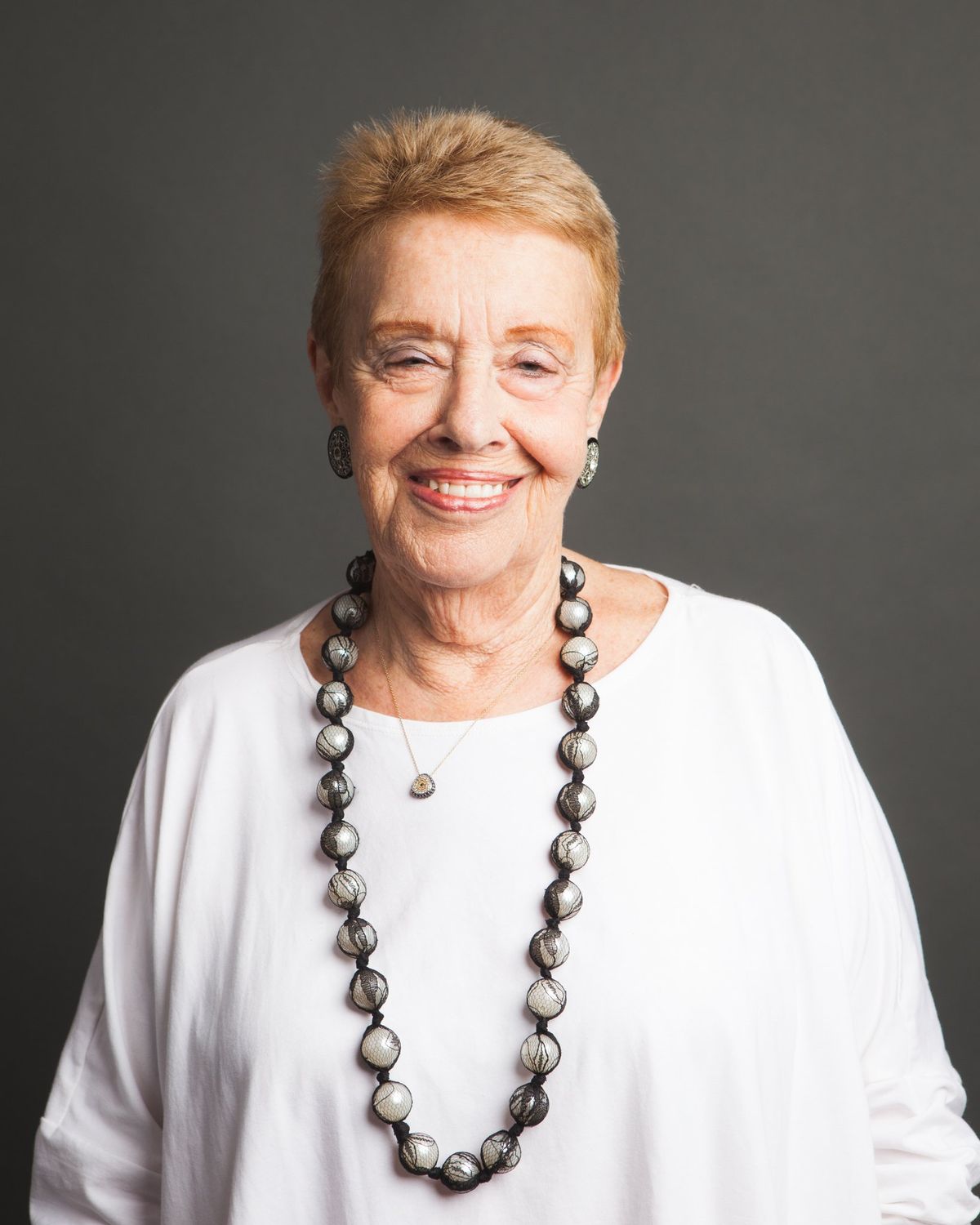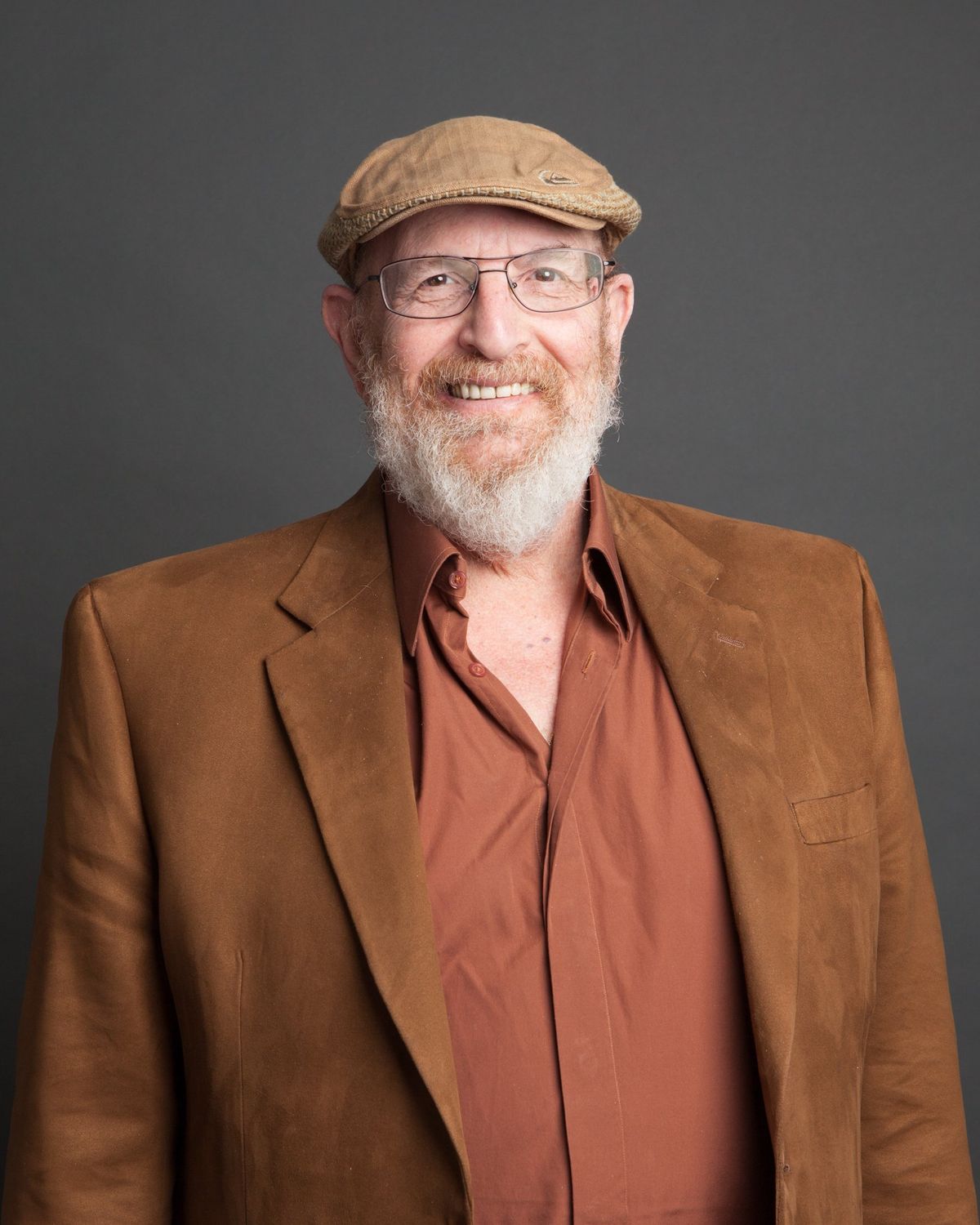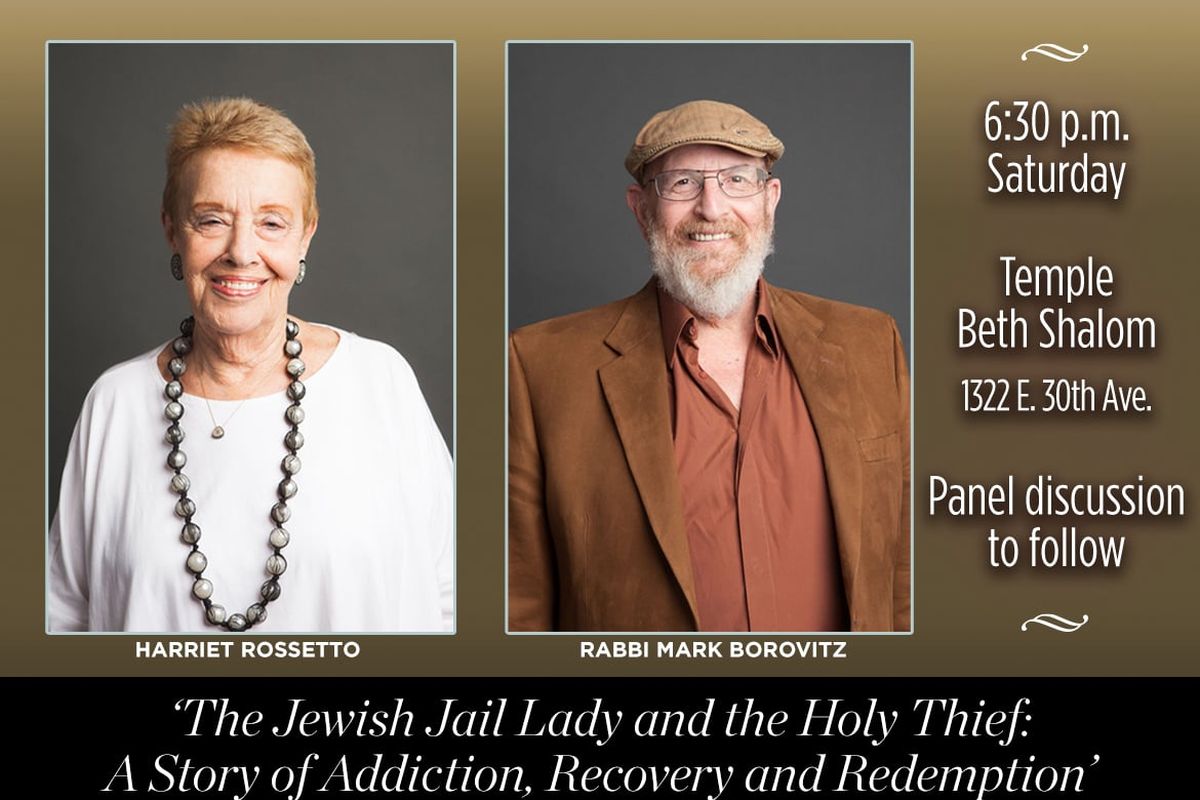‘The Jewish Jail Lady and the Holy Thief’ documentary follows story of housewife turned social worker who helped felons return to society
When Harriet Rossetto is too busy to answer a call, she has a stock line. “I always say, ‘Don’t interrupt me unless it’s the White House,’ ” Rossetto said.
Well, one day the White House finally phoned Rossetto.
Then-President George W. Bush called Rossetto in 2004 to congratulate her and her husband, Rabbi Mark Borovitz, for being part of the 2004 roundtable on faith and recovery. “That meant a lot to us,” Rossetto said while calling with her husband from their Palm Desert, California home. “President Bush was looking for a faith based spiritual program.”
Rossetto, 85, and Borovitz, 72, work together to remove the stigma of addiction and created Beit T’Shuvah, a nonprofit addiction recovery center and synagogue in Los Angeles 30 years ago. Their compelling and unlikely story is chronicled in the documentary, “The Jewish Jail Lady and the Holy Thief: A Story of Addiction, Recovery and Redemption,” which will make its Spokane debut Saturday at Temple Beth Shalom.
It’s a fascinating film about Rossetto, a housewife turned social worker who enabled incarcerated felons to return to society, and her partnership with Borovitz, an ex-con and recovering alcoholic, who becomes an ordained rabbi. Rossetto met Borovitz at a synagogue service while Rossetto was a social worker at the California Institute for Men.
“I was an inmate and in and out of prison for six years when I met Harriet,” Borovitz said.
Borovitz was paroled in 1989. He and Rossetto fell in love and married in 1990. A decade later Borovitz became a rabbi and the couple formed Beit T’Shuvah and have saved many lives over the years.
“The message behind what we do and the film is that there is hope and that people can change,” Borovitz said.
Borovitz is living proof that folks can morph. “He’s one of the few people who stayed sober from the start of his initial program,” Rossetto said. “It’s not easy to make that transition.”
When asked how to make that change Borovitz and Rossetto said four words in unison. “Authenticity, responsibility and transparency.”
The forgiving Rossetto enjoys being a social worker even though she had to deal with some hardened characters.
“I like being with drug addicts,” Rossetto said. “They’re more fun in some ways and definitely more honest than say someone who is on the board of directors. They tell it like it is. They’re transparent and raw.”
The film, which released in 2022 and screened at the Santa Barbara Film Festival, the Santa Barbara Jewish Film Festival and the Newburyport Documentary Film Festival, is powerful and surprising.
Borovitz bonding with President Bush was unexpected.
“President Bush and I are about as far apart politically as people can be,” Borovitz said. “However, his passion and belief in recovery and faith is where we met. I think there’s a great message there for all of the people in this divided country. You can be so different politically but you can find that common ground and there is hope for everyone to change. I’m the perfect example of that and you can see it in the documentary.”
There will also be a panel discussion featuring Rossetto, Borovitz, Spokane County Sheriff John Nowels; Spokane Regional Health District Health Officer Frank Velázquez, M.D.; Frontier Behavioral Health COO Jan Tokumoto Downing; and Sandra Altshuler, who served as coordinator of the Spokane County Adult Felony Behavioral Health Therapeutic Drug Courts for a decade. Gonzaga University associate professor of sociology and criminology Michael DeLand will serve as moderator.


